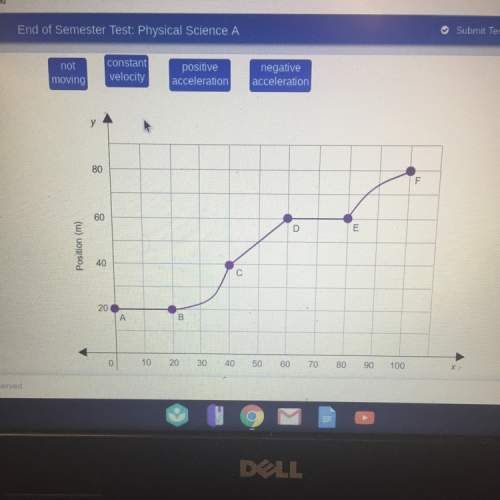
What conditions in the nucleus are likely to result in the nucleus breaking apart? a. when the repulsion of the strong force is weaker than the repulsion of the electrostatic force b. when the attraction of the strong force is greater than the attraction of the electrostatic force c. when the repulsion of the strong force is greater than the attraction of the electrostatic force d. when the attraction of the strong force is weaker than the repulsion of the electrostatic force

Answers: 1


Other questions on the subject: Physics

Physics, 22.06.2019 06:30, jordanbyrd33
Air initially at 0.75 bar, 1000 k, and occupying a volume of 0.12 m^3 undergoes two processes. process 1-2: the air is compressed isothermally until the volume is halved. process 2-3: the air undergoes a constant pressure process until the volume is halved again. assume ideal gas behavior. a) determine the mass of the air, in kg. b) the work and the heat transfer for each of the two processes, in kj. (100 kj = 1 bar . m^3)
Answers: 1

Physics, 22.06.2019 08:50, dijonmckenzie3
The electronic structure or chlorine is 2.8.7 what is the electronic structure of fluorine?
Answers: 2


Physics, 22.06.2019 12:50, angelica3752
Match each vocabulary term to its definition. 1. electrons neutral subatomic particles found in the nucleus of the atom 2. neutron lowest energy position of an electron in an atom 3. photon the path of an electron around the nucleus of an atom 4. ground state negatively charged, subatomic particles 5. protons packet of energy of specific size 6. element substance with only one type of atom 7. orbital positively charged, subatomic particles found in the nucleus of the atom
Answers: 1
You know the right answer?
What conditions in the nucleus are likely to result in the nucleus breaking apart? a. when the repu...
Questions in other subjects:













